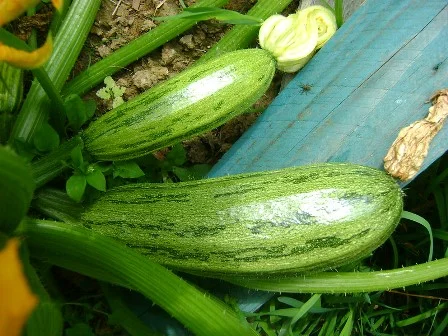When it comes to gardening, one of the secrets to a bountiful harvest lies in the ancient practice of companion planting. This method involves strategically planting different crops close to one another to enhance growth, improve flavor, deter pests, and increase overall garden productivity. With its sprawling vines and rich nutritional value, squash is a staple in many gardens. However, it can greatly benefit from the company of certain plants. Here, we’ll explore some of the best companion plants for squash and how they contribute to a thriving garden ecosystem.
1. Nasturtiums
Nasturtiums are a vibrant addition to any garden, and their benefits extend beyond their beauty. These flowers are known to repel squash bugs, aphids, and other pests that typically target squash plants. Moreover, nasturtiums attract beneficial insects like bees and predatory wasps, which help in pollination and pest control.
2. Marigolds
Marigolds are another excellent companion for squash. They release alpha-terthienyl, which can deter root-knot nematodes, and harmful soil pests that can damage squash roots. Additionally, their bright flowers attract pollinators, ensuring a better fruit set for your squash.
3. Radishes
Radishes are fast-growing root vegetables that can be planted among squash to serve as a trap crop. They attract pests such as flea beetles away from the squash, thereby protecting the more valuable plants. Radishes can also help to aerate the soil, improving its texture and nutrient availability.
4. Beans
Beans are a part of the legume family, known for their ability to fix nitrogen in the soil through their root nodules. This natural fertilization process benefits squash, which is a heavy feeder, by providing it with the essential nutrients needed for robust growth. Additionally, the vertical growth habit of beans can maximize garden space and create a natural trellis for climbing squash varieties.
5. Corn
Corn, beans, and squash are famously known as the “Three Sisters” in Native American agriculture. Corn provides a natural support structure for climbing beans, while beans fix nitrogen in the soil, enriching it for the corn and squash. Squash, with its large leaves, acts as a living mulch, shading the soil and retaining moisture while suppressing weed growth.
6. Borage
Borage is an herb that produces beautiful star-shaped blue flowers, attracting pollinators like bees. It is also known to improve the flavor and growth of squash. Borage can repel tomato hornworms and cabbage worms, both of which can also affect squash plants. Moreover, borage is a dynamic accumulator, drawing up nutrients from deep within the soil and making them available to neighboring plants.
7. Herbs (Dill, Mint, and Oregano)
Certain herbs can act as pest deterrents when planted near squash. Dill attracts beneficial insects such as predatory wasps and hoverflies, which help keep pest populations in check. Mint, although invasive and best grown in containers, can repel squash bugs and ants. Oregano can serve as a ground cover that helps to retain soil moisture and suppress weeds.
Tips for Successful Companion Planting with Squash
- Spacing and Timing: Ensure that companion plants are appropriately spaced to avoid overcrowding, which can lead to competition for resources. Also, the growth habits and life cycles of the plants should be considered to maximize their benefits.
- Soil Health: Maintain healthy soil by adding organic matter and compost. Healthy soil supports a diverse microbial community that benefits all plants in the garden.
- Pest Management: Regularly monitor your garden for pests and diseases. Companion plants can help deter pests, but integrated pest management practices, such as hand-picking pests and using organic pesticides, can also be necessary.
- Watering and Mulching: Proper watering and mulching help maintain soil moisture levels and reduce stress on plants, enhancing the effectiveness of companion planting.
By thoughtfully selecting companion plants for your squash, you can create a harmonious and productive garden ecosystem. Whether you are a seasoned gardener or a novice, these natural partnerships can lead to healthier plants and more bountiful harvests.
MORE POSTS: What are good companion plants for peppers?

